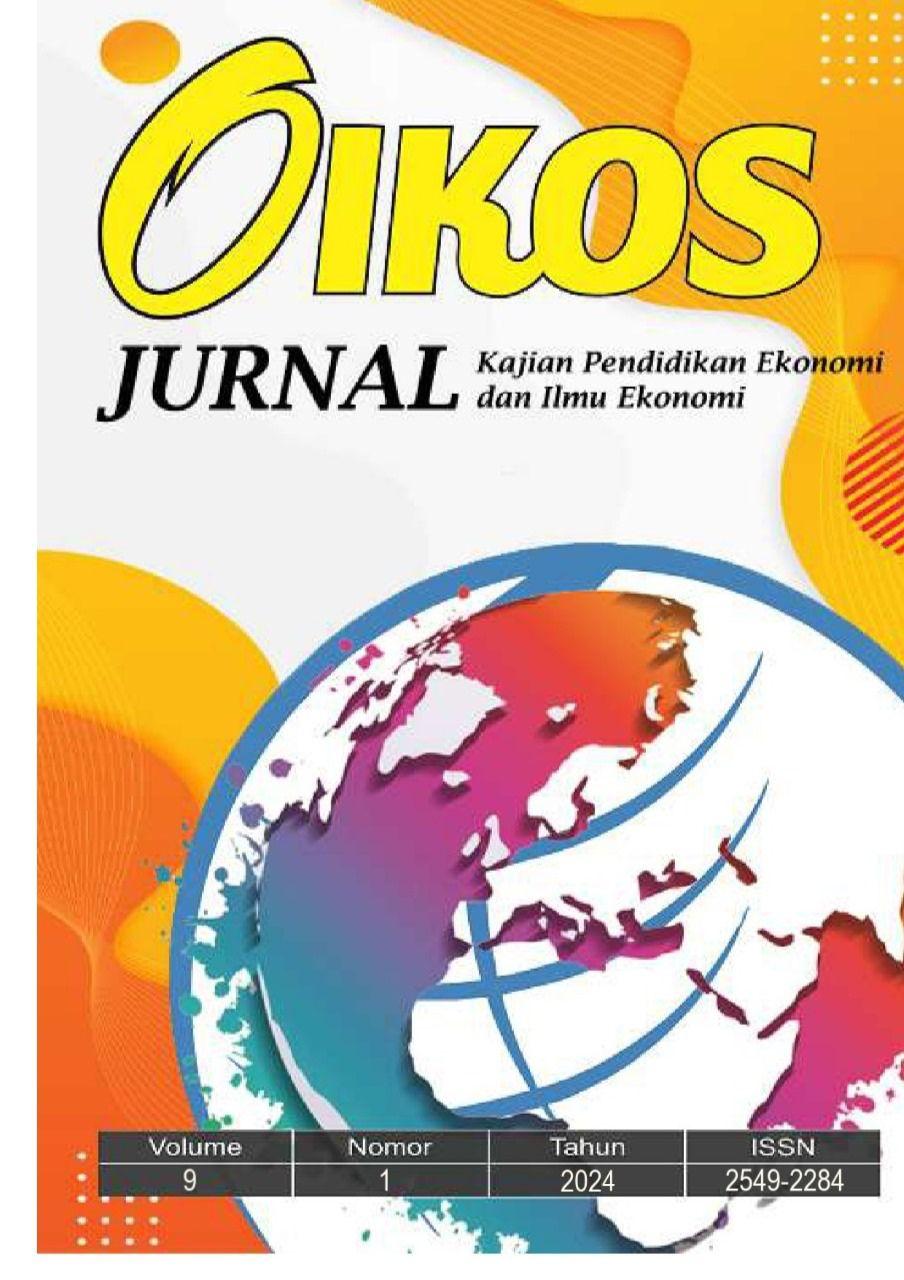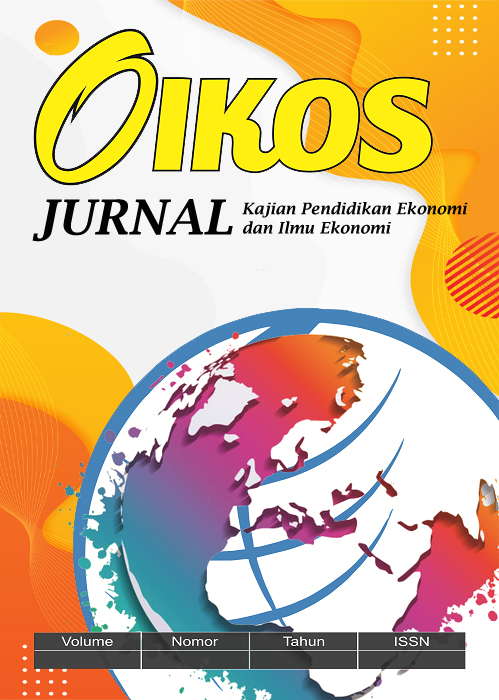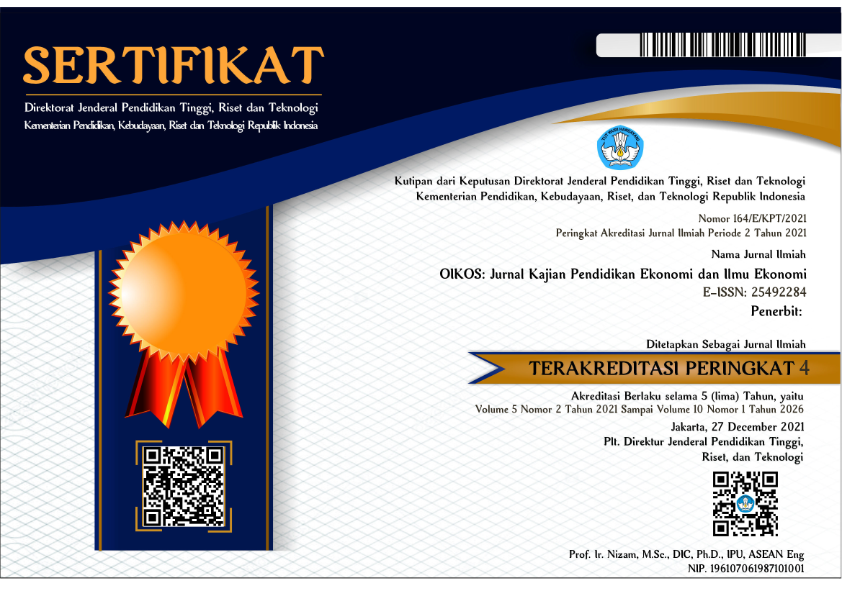PENGUKURAN DIGITAL DESTINATION BRANDING PADA DESTINASI WISATA POPULER DI SULAWESI TENGAH
Keywords:
Digital destination branding, social networks, digital tourism servicesAbstract
This research specifically examines digital branding of tourism destinations. This research aims to measure factors that are considered significant for destination branding in the digital arena. The sample for this research is DMOs in the top 10 tourist destinations in Central Sulawesi Province. Measuring digital destination branding uses three pillars, namely social network presence (SNP), Social Network Content (SNC), and Digital Tourism Services (DTS). Data analysis uses content analysis using dichotomous data. The results of this research show that DMOs in Central Sulawesi have poor digital destination branding performance, except for Lore Lindu and Lembah Bada which are quite good at branding their destinations digitally. The other eight destinations show that the DDB score is in the bad category. This can be seen in the SNP, SNC and DTS pillars which are still low. The eight DMOs are still very poor in managing their social media in promoting their tourist destinations. This poor digital performance is a consequence of the inertial attitude of the well-known tourist destination DMO.
Downloads
References
Almeida-Santana, A., & Moreno-Gil, S. (2017). New trends in information search and their influence on destination loyalty: Digital destinations and relationship marketing. Journal of Destination Marketing & Management, 6(2), 150–161.
Almeyda-Ibanez, M., & George, B. P. (2017). The evolution of destination branding: A review of branding literature in tourism. Journal of Tourism, Heritage & Services Marketing, 3(1), 9–17.
Ammirato, S., Felicetti, A. M., Linzalone, R., & Carlucci, D. (2021). Digital business models in cultural tourism. International Journal of Entrepreneurial Behavior & Research, 28(8), 1940–1961.
An, S., Choi, Y., & Lee, C. K. (2021). Virtual travel experience and destination marketing: Effects of sense and information quality on flow and visit intention. Journal of Destination Marketing & Management, 19.
Bakhshayesh, R. S., Mohammad Shafiee, M., & Kazemi, A. (2021). The impact of destination brand awareness and experience on destination brand identification. Quarterly Journal of Brand Management, 8(4).
Blain, C., Levy, S. E., & Ritchie, J. B. (2005). Destination branding: Insights and practices from destination management organizations. Journal of Travel Research, 43(4), 328–228.
Bramwell, B. (1998). User satisfaction and product development in urban tourism. Tourism Management, 19(1), 35–47.
Choe, Y., Kim, J., & Fesenmaier, D. R. (2017). Use of social media across the trip experience: An application of latent transition analysis. Journal of Travel & Tourism Marketing, 34(4), 431–443.
Confetto, M. G., Conte, R., Palazzo, M., & Siano, A. (2023). Digital destination branding : A framework to define and assess European DMOs practices. Journal of Destination Marketing & Management, 30(August), 1–15. https://doi.org/10.1016/j.jdmm.2023.100804
Cooper, C., Fletcher, J., Gilbert, D., Fyall, A., & Wanhill, S. (2005). Tourism: Principles and practice. Pearson education.
Cooper, M. A., Camprubí, R., Koc, E., & Buckley, R. (2021). Digital destination matching: Practices, priorities and predictions. Sustainability, 13(19).
Dai, F., Wang, D., & Kirillova, K. (2022). Travel inspiration in tourist decision making. Tourism Management, 90.
Davidson, R., & Maitland, R. (1997). Tourism destinations. Hodder & Stoughton.
Gnoth, J. (2022). Leveraging export brands through a tourism destination brand. Journal of Brand Management, 9(4), 262–280.
Gupta, G. (2019). Inclusive use of digital marketing in tourism industry. In , Vol. 1. Information systems design and intelligent applications. Proceedings of Second International Conference India, 411–419.
Guzzo, T., D’Andrea, A., Ferri, F., & Grifoni, P. (2013). A framework to promote and develop a sustainable tourism by using social media. In OTM Confederated International Conferences "on the Move to Meaningful Internet Systems, 656–665.
Kolb, B. (2017). Tourism marketing for cities and towns: Using social media and branding to attract tourists. Routledge.
Leung, R., Vu, H. Q., & Rong, J. (2017). Understanding tourists’ photo sharing and visit pattern at non-first tier attractions via geotagged photos. Information Technology & Tourism, 17(1), 55–74.
Lim, M. W., Ahmad, A., Rasul, T., & Omar Parvez, M. (2021). Challenging the mainstream assumption of social media influence on destination choice. Tourism Recreation Research, 46(1), 137–140.
Line, N. D., & Runyan, R. C. (2014). Destination marketing and the service-dominant logic: A resource-based operationalization of strategic marketing assets. Tourism Management, 17(2).
Liu, H., Hasan, M., Cui, D., Yan, J., & Sun, G. (2022). Evaluation of tourism competitiveness and mechanisms of spatial differentiation in Xinjiang, China. PloS One, 17(2).
McCabe, S., Li, C., & Chen, Z. (2016). Time for a radical reappraisal of tourist decision making? Toward a new conceptual model. Journal of Travel Research, 55(1), 3–15.
Morgan, N., Pritchard, A., & Piggott, R. (2016). The creation of a powerful niche destination brand. J. Brand Manag, 9, 335–354.
Pachucki, C., Grohs, R., & Scholl-Grissemann, U. (2022). Is nothing like before? COVID-19–evoked changes to tourism destination social media communication. Journal of Destination Marketing & Management, 23.
Park, D., Kim, W. G., & Choi, S. (2019). Application of social media analytics in tourism crisis communication. Current Issues in Tourism, 22(15), 1810–1824.
Parlov, N., Perkov, D., & Siˇcaja, Z. (2016). New trends in tourism destination branding by means of digital marketing. Acta Economica Et Turistica, 22(2), 139–146.
Pike, S., & Page, S. J. (2014). Destination marketing organizations and destination marketing: A narrative analysis of the literature. Tourism Management, 41, 202–227.
Pino, G., Peluso, A. M., Del Vecchio, P., Ndou, V., Passiante, G., & Guido, G. (2018). A methodological framework to assess social media strategies of event and destination management organizations. Journal of Hospitality Marketing & Management, 28(2), 189–216.
Qu, H., Kim, L. H., & Im, H. H. (2011). A model of destination branding: Integrating the concepts of the branding and destination image. Tourism Management, 32(3), 465–476.
Reitsamer, B. F., & Brunner-Sperdin, A. (2017). Tourist destination perception and wellbeing: What makes a destination attractive? Journal of Vacation Marketing, 23(1), 55–72.
Scott, P., Scott, T., Stokes, P., Moore, N., Smith, S. M., Rowland, C., & Ward, T. (2017). The consumer journey in the digital age-the challenges faced by destination and place marketing agencies. International Journal of Digital Culture and Electronic Tourism, 2(1), 28–45.
Sotiriadis, M. (2021). Tourism destination marketing: Academic knowledge. In Encyclopedia (pp. 42–56).
Tham, A., Mair, J., & Croy, G. (2020). Social media influence on tourists’ destination choice: Importance of context. Tourism Recreation Research, 45(2), 161–175.
Tran, N. L., & Rudolf, W. (2022). Social media and destination branding in tourism: A systematic review of the literature. Sustainability, 14(20).
Uysal, M., Harrill, R., & Woo, E. (2011). Destination marketing research: Issues and challenges. Destination Marketing and Management: Theories and Applications, 99–112.
Wahab, S., Crampon, L. J., & Rothfield, L. M. (1976). Tourism marketing: A destinationorientated programme for the marketing of international tourism. Tourism International Press.
Yılmaz, Y. (2021). How does destination image evolve? Introducing the Co-creation of the destination image approach. European Journal of Tourism, Hospitality and Recreation, 11(1), 11–21.
Zainal-Abidin, H., Scarles, C., & Lundberg, C. (2023). The antecedents of digital collaboration through an enhanced digital platform for destination management: A micro-DMO perspective. Tourism Management, 96.
Zenker, S., & Braun, E. (2010). The place brand centre–a conceptual approach for the brand management of places. In 39th European Marketing Academy Conference, 1–8.
Downloads
Published
Issue
Section
License
Copyright (c) 2025 OIKOS: Jurnal Kajian Pendidikan Ekonomi dan Ilmu Ekonomi

This work is licensed under a Creative Commons Attribution 4.0 International License.









